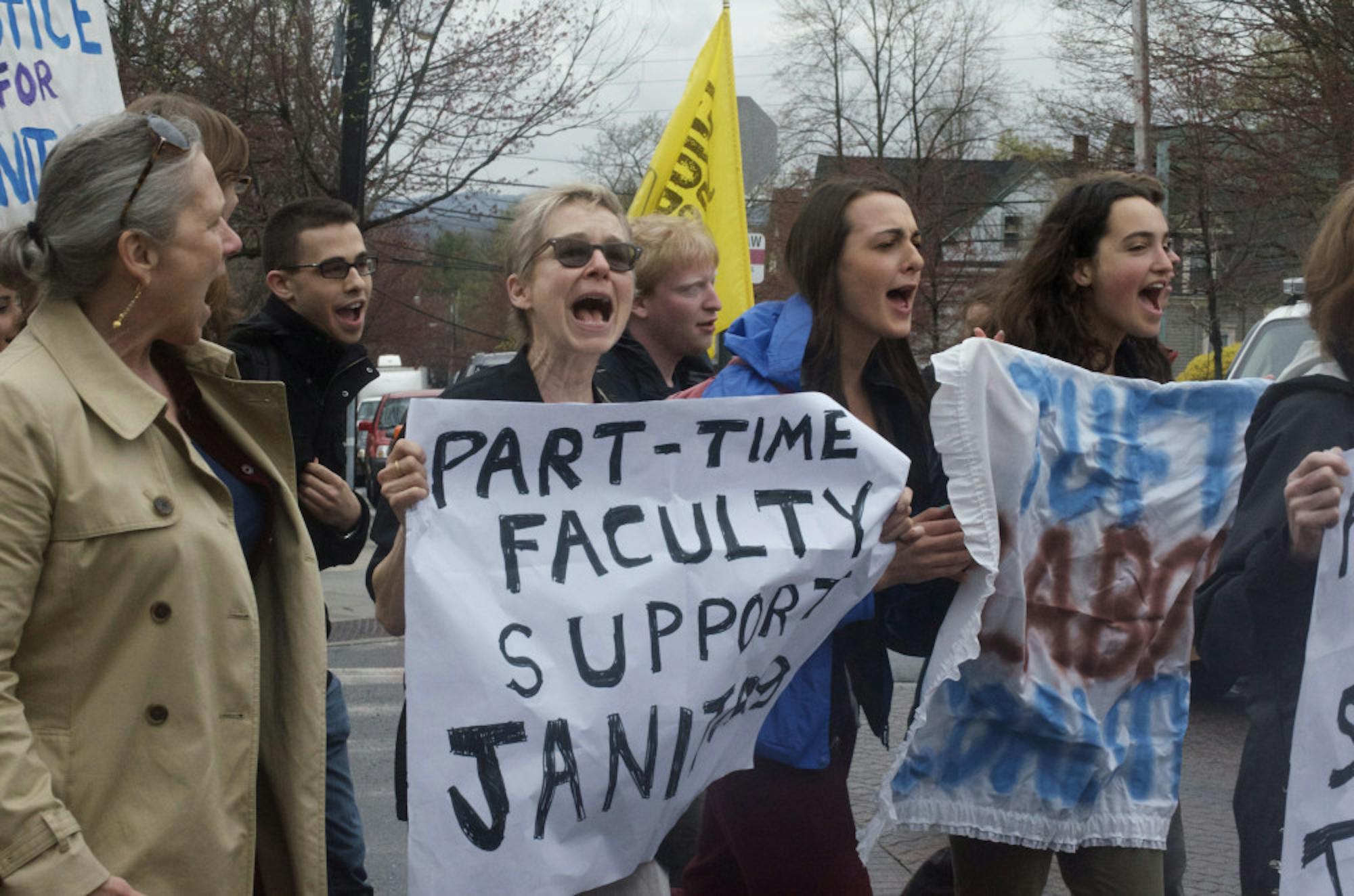Tufts recently entered negotiations with DTZ, the contracting agency for its janitors, to revise its plan of operations for its janitorial staff.The new plan would likely include significant cuts to the janitorial staff -- a move that is ethically unacceptable and shockingly inconsistent with the standards of “active citizenship” that Tufts claims to uphold.
In an article last month from the Tufts Daily, headlined “Tufts starts negotiations for new plan regarding janitorial operations,”Vice President for Operations Linda Snyder repeatedly praised "efficiency" and "sustainability" as the primary motives behind the potential cuts. But as the article also noted, many janitors are currently responsible for singlehandedly cleaning entire buildings. Each janitor currently cleans approximately 1,900 square feet per hour, which totals to about one dorm per day. How could cutbacks make this system more "efficient?" What kind of "sustainability" will cutbacks promote? Whatever the answer may be, it does include a sustainable work routine for the Tufts’ janitors.
Rather than acknowledge the necessity of a sustainable work environment, Snyder suggests that janitorial cutbacks could help the university “increase its environmental sustainability,” as in lieu of custodial cleaning, office workers would be “asked to take their food waste and recycling products to centralized receptacles.” In turn, she held that “the recycling rate will improve and the amount of non-recycled waste will decrease.” Yet this justification hides the real problem -- laying off janitors -- behind a separate environmental issue, presenting a classic case of greenwashing. Tufts’ recycling habits will not improve by firing janitors, they will improve when the university takes measures to educate its faculty and students about consumption and waste disposal.
Returning to efficiency as her second ideological pillar, Snyder argues that janitorial cutbacks would improve the efficiency of the university as a whole by cutting its operating costs. According to Snyder, saving money on operating costs would mean directing more funds toward “keeping tuition affordable.” While this remains central to our interest as Tufts students, Tufts Labor Coalition (TLC) asks that Tufts examine its budget for other places to tighten the purse strings. Snyder asserts that the cutbacks will ultimately “benefit the Tufts community as a whole.” Snyder’s definition of the Tufts community, however, apparently does not include our janitors. It is much easier to dispose of people when you refuse to acknowledge their presence in the first place.
Tufts’ move to layoff its janitors follows a long history of unethical treatment of its custodial staff. In 1994, Tufts switched from directly employing its janitors to using a private custodial service. With this switch, the janitors lost their Tufts benefits -- including pension plans and tuition for their children. In 1997, Tufts contracted with a new private company that offered the same services at a lower cost. The company charged less by dismissing 110 custodial workers, reducing the wages of the remaining workers by 25-30 percent, and cutting sick days and vacation time.
In 2008, following pressure from students, custodians and Service Employees International Union, Tufts signed a five-year contract that included wage hikes, better health benefits and more sick days for custodial staff.
The current cutbacks follow this contract’s expiration, and fall in line with Tufts’ pattern of targeting its janitors. Students and staff cannot standby as the university continues to abuse its custodians, and we certainly cannot continue to pride ourselves on community outreach and humane values. We must put “active citizenship” into action, and begin protecting the very people that make our campus liveable. Listen up Linda: we will not let you throw away our janitors.
Please join Tufts Labor Coalition on Mondays at 9 p.m. in Eaton 202 to discuss our next steps.
Listen up Linda: Cuts to the janitorial staff are not an option

April 23, 2014 - Tufts Labor Coalition organized a march around campus to support the rights of janitors at Tufts. (Caroline Geiling/ The Tufts Daily)





